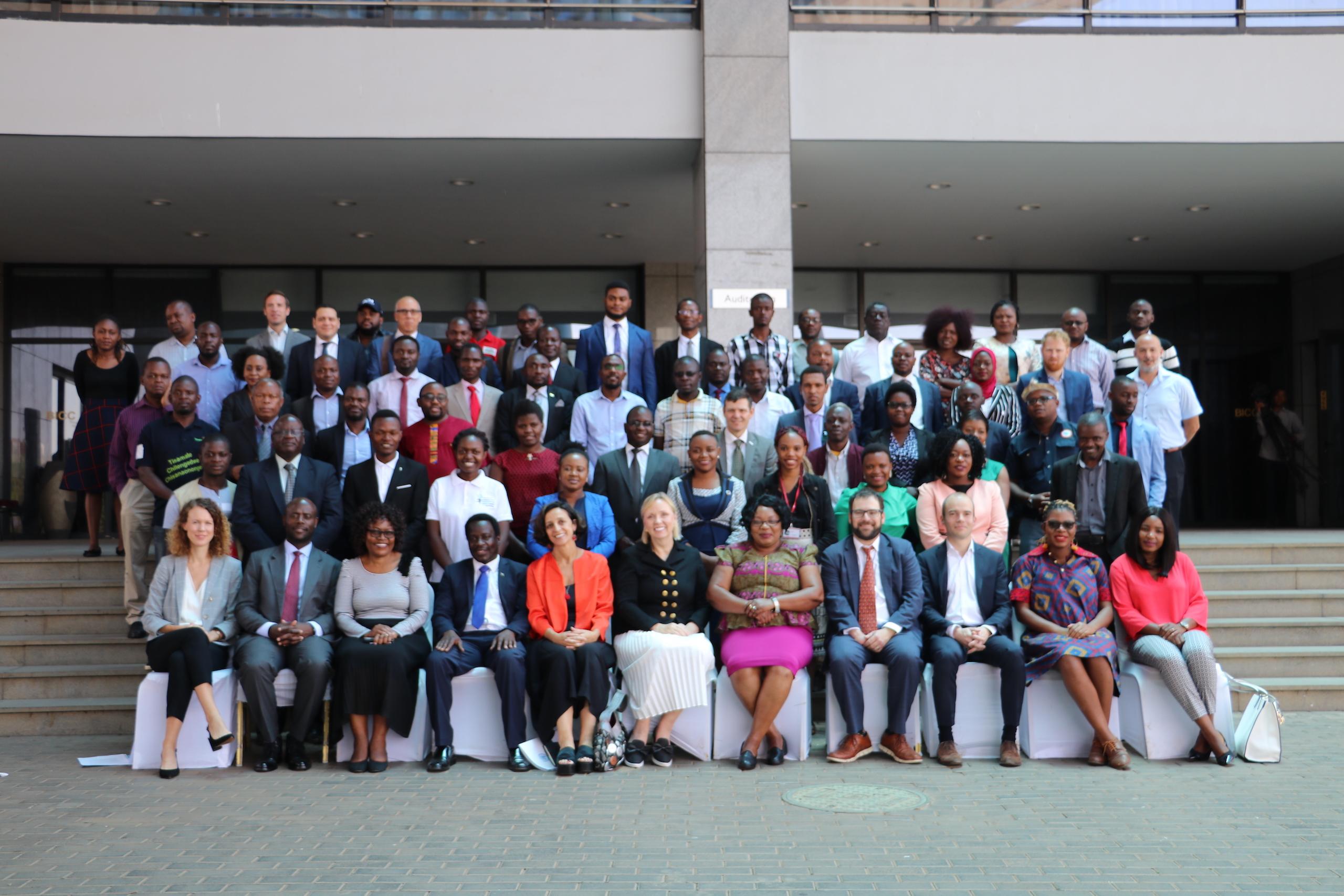- عربي
- 中文
- English
- Français
- Русский
- Español
Malawi Has an Opportunity to Achieve 100% Sustainable Energy Access by 2030
img_9866_final.jpg

LILONGWE, 9 October 2019 – Malawi, a least developed country (LDC), has an opportunity to achieve 100% access to electricity by 2030 according to the Malawi Sustainable Energy Study launched today in the country’s capital.
With a population of 17.6 million people, the African nation lags behind much of the world on energy access with just 11 percent of its population having access to grid electricity. And for those who are connected to grid power, supply remains largely unreliable. Accelerating energy access has clear benefits through direct impacts on poverty eradication, climate change, health, water and economic transformation.
The study will guide the Malawian Government, development partners, investors and the private sector to converge on a shared agenda to unlock investment in the energy sector. Moreover, the study makes the case for how Malawi can achieve Sustainable Development Goal 7 — the international community’s commitment to provide universal access to modern, reliable, affordable and sustainable energy by 2030. The study estimates that Malawi will need to mobilise $3 billion by 2030 to close gaps and reach its full energy potential.
Speaking at the launch, Mrs. Chimwemwe Gloria Banda, Chief Director for Energy Affairs in the Ministry of Natural Resources, Energy and Mining said: “As the world is undergoing profound change across global energy markets, with energy transformation growing stronger every year, Malawi should not be left behind. Therefore, increasing investments in sustainable energy production and supply will help secure an inclusive, prosperous and sustainable future for all Malawians while working towards meeting targets set under Sustainable Development Goals.”
Taking her turn at the launch, Heidi Schroderus-Fox, Director of the United Nations Office of the High-Representative for Least Developed Countries, Landlocked Developing Countries and Small Island Developing States said: “Development needs energy and energy is the lifeblood of every economy. This study represents an important tool for Malawi to secure the sustainable energy future it aspires for.”
She added: “While Malawi is making significant efforts to achieve SDG7, it cannot do this alone. This is why we are also urging the international community to support these efforts. This study provides development partners with the opportunity to assess and align their development assistance with Malawi’s national energy efforts.”
It is estimated that $2.5 billion in the power sector and up to $600 million for cooking and forestry will be needed by 2030. This investment represents a tripling of generation capacity to 1200 megawatts while adding 1.2 million new grid connections.
Equally important, the study presents a scenario with savings on energy investment of $500 million by 2030 and avoidance of 20 MT of CO2 emissions compared to previous plans. This will be a significant investment for a country with a Gross Domestic Product (GDP) of $5.4 billion in 2016.
Raising the necessary funding from a range of sources can drive rapid change in the energy sector the study finds. This will include the commissioning of key projects, including solar PV plants which are currently in the pipeline to create a positive feedback loop to de-risk the sector and crowd in further funding. Public funding as well as subsidies will also be required while government guarantees and climate finance are expected to leverage funding from commercial sources.
The UN Resident Coordinator, Maria Jose Torres, said insufficient and unreliable electricity is hampering social and economic development in Malawi, and that there is need for a concerted effort to address this.
“A lack of energy access across Malawi continues to put a brake on the pace of progress and our collective efforts to make lasting improvements in people’s lives through better health and education services, higher agricultural productivity, and broad economic transformation in rural areas and among Malawi’s growing cities and industries,” said Torres. “We, therefore, welcome the insights from the study to ensure practical action that accelerates access to clean and reliable energy across Malawi.”
Through the Malawian Sustainable Energy for All Action Agenda, the Government of Malawi recognises the central role energy plays in socioeconomic development and is already working hard to attract investors, providing a range of guarantees and exchange rate protections as well as implementing policies to reduce perceived risks. The new study is seen as a major asset outlining the means to accelerate progress towards sustainable energy for all Malawians.
The Malawi Sustainable Energy Study was compiled by the Rocky Mountain Institute and jointly commissioned by the Government of Malawi’s Ministry of Natural Resources, Energy and Mining and the United Nations Office of the High-Representative for Least Developed Countries, Landlocked Developing Countries and Small Island Developing States (UN-OHRLLS). Support for the study was also provided by the United Nations in Malawi.
The study can be found at: https://bit.ly/31VP63e
For more details about this event, please visit here.





